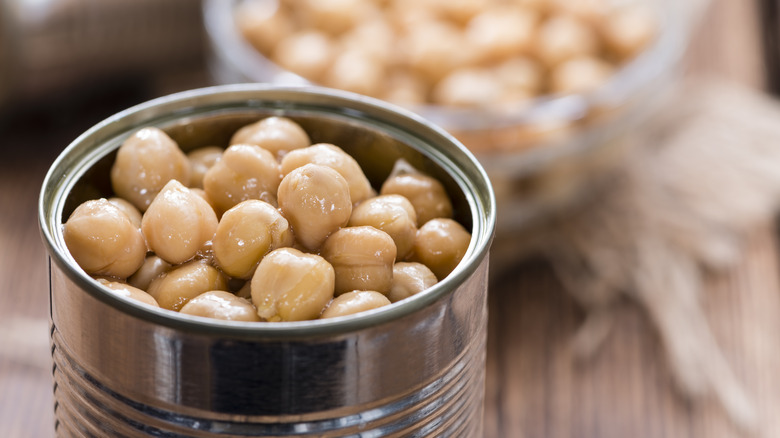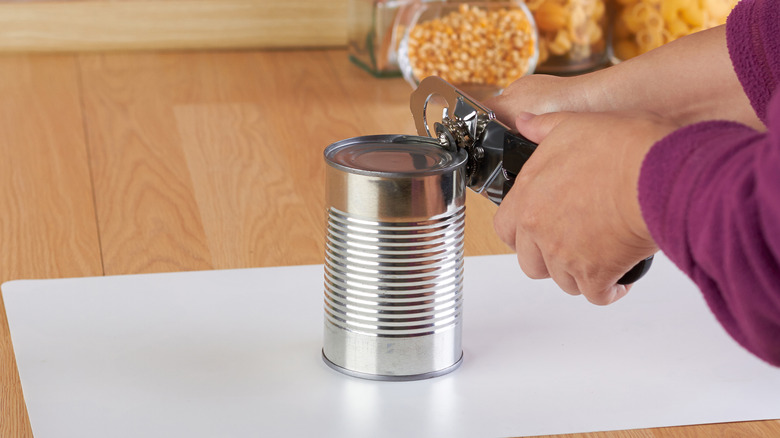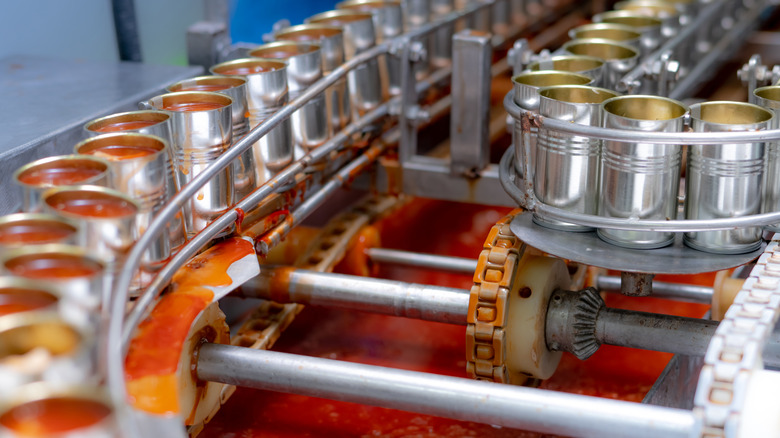Heating Up Canned Food On The Stove Isn't A Genius Hack At All
Despite popular misconceptions, canned food is tasty and nutritious. Canned fruits, veggies, and meats are also quite convenient when it comes to home cooking. Most items can last many months in your pantry when subject to the correct storage conditions. And because items are pre-cooked, they're often pretty easy to prepare. However, you must steer clear of certain cooking techniques to ensure a safe, wholesome experience. One important thing to remember is that the can your food comes in is for storage, not for cooking.
It's an easy mistake to make. After all, pots and pans are made of metal and you cook in those, right? Doesn't that mean that you can conveniently heat up food in the can to eliminate some of the mess and hassle that accompany dinner? No. No, it does not. Cooking canned items in their cans on the stovetop can have a negative impact on your health, while also increasing the chance of other hazards.
When food's in a can, stick with the pan
For starters, applying direct heat to cans releases all sorts of toxic chemicals, as explained by MedicineNet. For instance, heating the metal can lead to the release of the mineral chromium. While the body needs a small amount of chromium to ensure insulin is used effectively, too much of it is definitely a bad thing. Consider that exposure to excessive amounts of chromium may cause health effects like skin rash and shortness of breath. Nickel exposure, which can also occur when applying direct heat to canned foods, is equally problematic thanks to its effects on internal organs, like the lungs and kidneys.
Many canned goods also contain a plastic lining that can lead to similar ill effects. Plastics usually include a chemical called bisphenol A, which can make its way into food as the can is being heated. Exposure to bisphenol A may cause harm to babies and children, while also possibly increasing the risk of medical conditions like heart disease and Type 2 diabetes. And if these possible health issues aren't enough to deter you, heating canned goods directly can also lead to a risk of injury.
Who knew dinnertime could be so dangerous?
While heat application is an important part of the canning process, as it eliminates bacteria that would otherwise contribute to foodborne illness, keep in mind that this process is conducted by trained and knowledgeable professionals. That means they have the tools and experience to mitigate possible issues, such as exploding cans.
On the other hand, you face a pretty significant risk of injury when heating cans on stovetops or in microwaves. Placing a can on a stovetop burner can potentially cause it to explode, as the food inside will expand quickly. Because the can is still sealed, the expanding food has nowhere to go, which means that it can burst when the pressure becomes too great. The same problem can occur in the microwave, which can also lead to a damaging fire in the home. Preparing canned food is highly convenient, so shortcuts aren't usually necessary. This is especially true when it comes to shortcuts that can endanger you and your loved ones.


